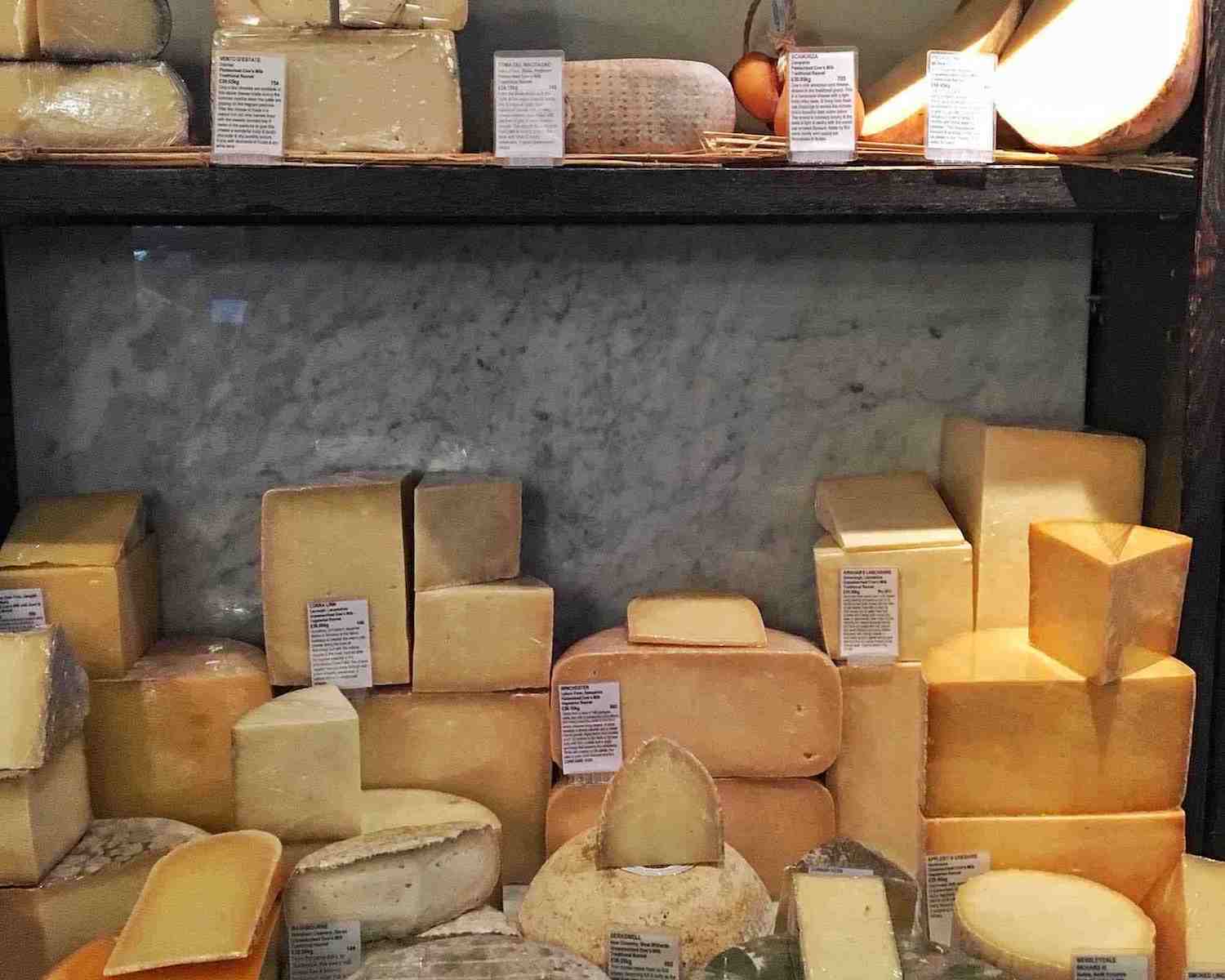
 What are some of the health benefits of cheese?
What are some of the health benefits of cheese?
 Ah, one of my favorite topics! As a vegetarian turophile, cheese plays a major role in my diet as a source of calories, protein, and minerals. Without a doubt, cheese can be part of healthy eating, but it should be in balance with other nutrients that it lacks, namely fiber. This is one reason for its undeserved reputation for causing, shall we say, a slowing of the digestion process. Cheese is so satisfying in flavor and calories that you might not feel hungry enough for a plate of leafy greens. This is a great reason to put a lot of cheese on your salad.
Ah, one of my favorite topics! As a vegetarian turophile, cheese plays a major role in my diet as a source of calories, protein, and minerals. Without a doubt, cheese can be part of healthy eating, but it should be in balance with other nutrients that it lacks, namely fiber. This is one reason for its undeserved reputation for causing, shall we say, a slowing of the digestion process. Cheese is so satisfying in flavor and calories that you might not feel hungry enough for a plate of leafy greens. This is a great reason to put a lot of cheese on your salad.
Seriously, though, thanks to recent research finally validating the healthy role of dairy fats, cheese is back on the good-guy list for those in the know. Milk fat, especially from animals fed a natural diet (grass for cows and sheep, and browse for goats) is quite high in omega–3 fatty acids and conjugated linoleic acid (CLA). The average American diet is far too low in omega–3s compared to omega–6s (found in the most commonly consumed oils), and research has shown that organic milk from cows that spend a certain amount of time on pasture contains 62 percent more omega–3 fatty acids than conventional milk. Further, CLAs are linked to reduced risk of cancer, heart disease, and diabetes, plus a higher body muscle–to–fat ratio. Cheese made from such milk—especially aged cheeses, in which fat is concentrated—are an even better source.
If you’re trying to improve your health through diet, however, don’t just add more cheese to your plate. Create a balanced approach: Make yourself a nice batch of fondue with aged, whole–milk cheese, and then scoop it out with nutrient–dense carrot sticks, broccoli florets, jicama wedges, and maybe a couple of whole grain crackers. Even better—follow it up with a nice evening stroll.





Ahhh, but you missed the big one. A reduction in median obesity from raw cheese. The study linked below is based on consumption on enteric coated capsules containing lactoferrin equivalent to that found in 100g of raw milk cheese. The fat globules in raw milk provide enteric properties destroyed by homogenisation.
https://www.cambridge.org/core/services/aop-cambridge-core/content/view/51329C1D9CD5F178654F84206A34311D/S0007114510002734a.pdf/potent_antiobesity_effect_of_entericcoated_lactoferrin_decrease_in_visceral_fat_accumulation_in_japanese_men_and_women_with_abdominal_obesity_after_8week_administration_of_entericcoated_lactoferrin_tablets.pdf
We can’t have too many reasons to love cheese- thanks for sharing!